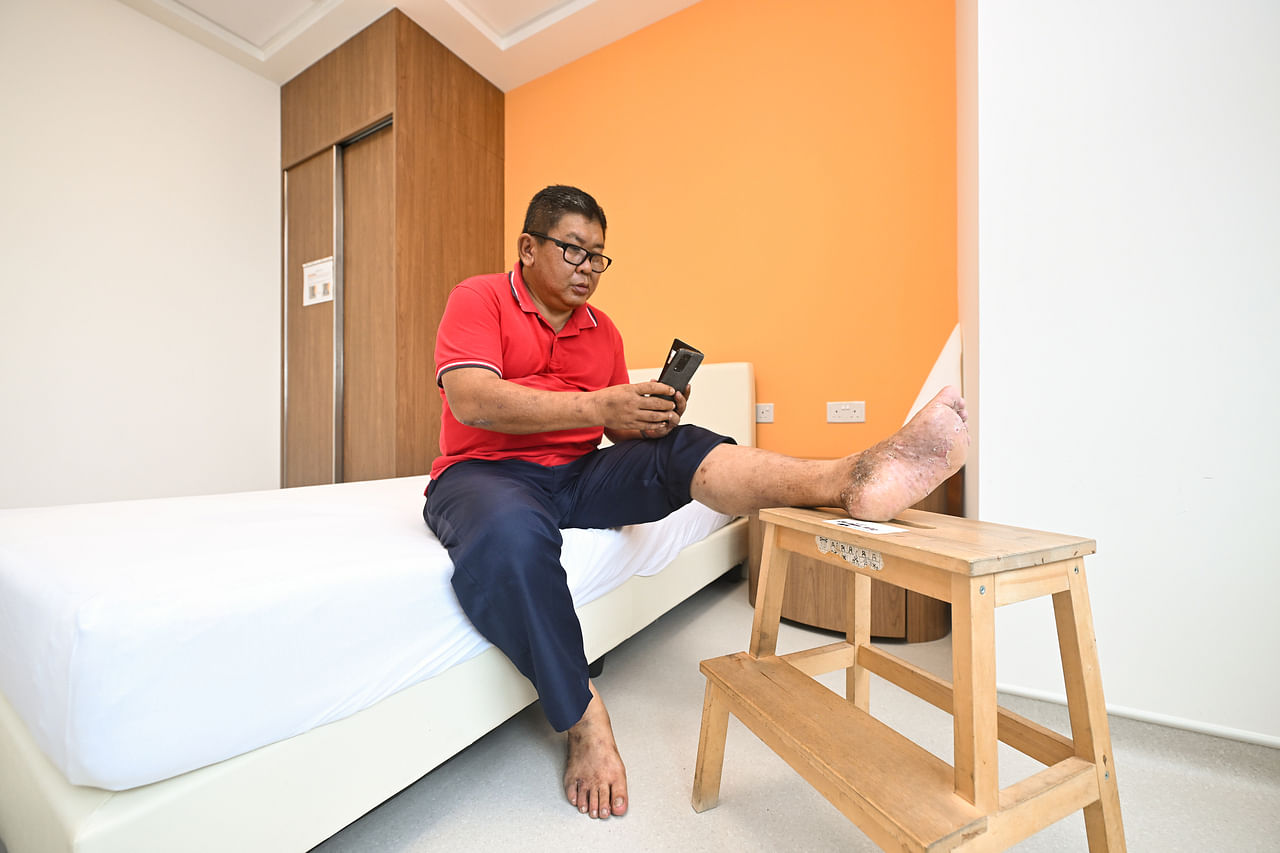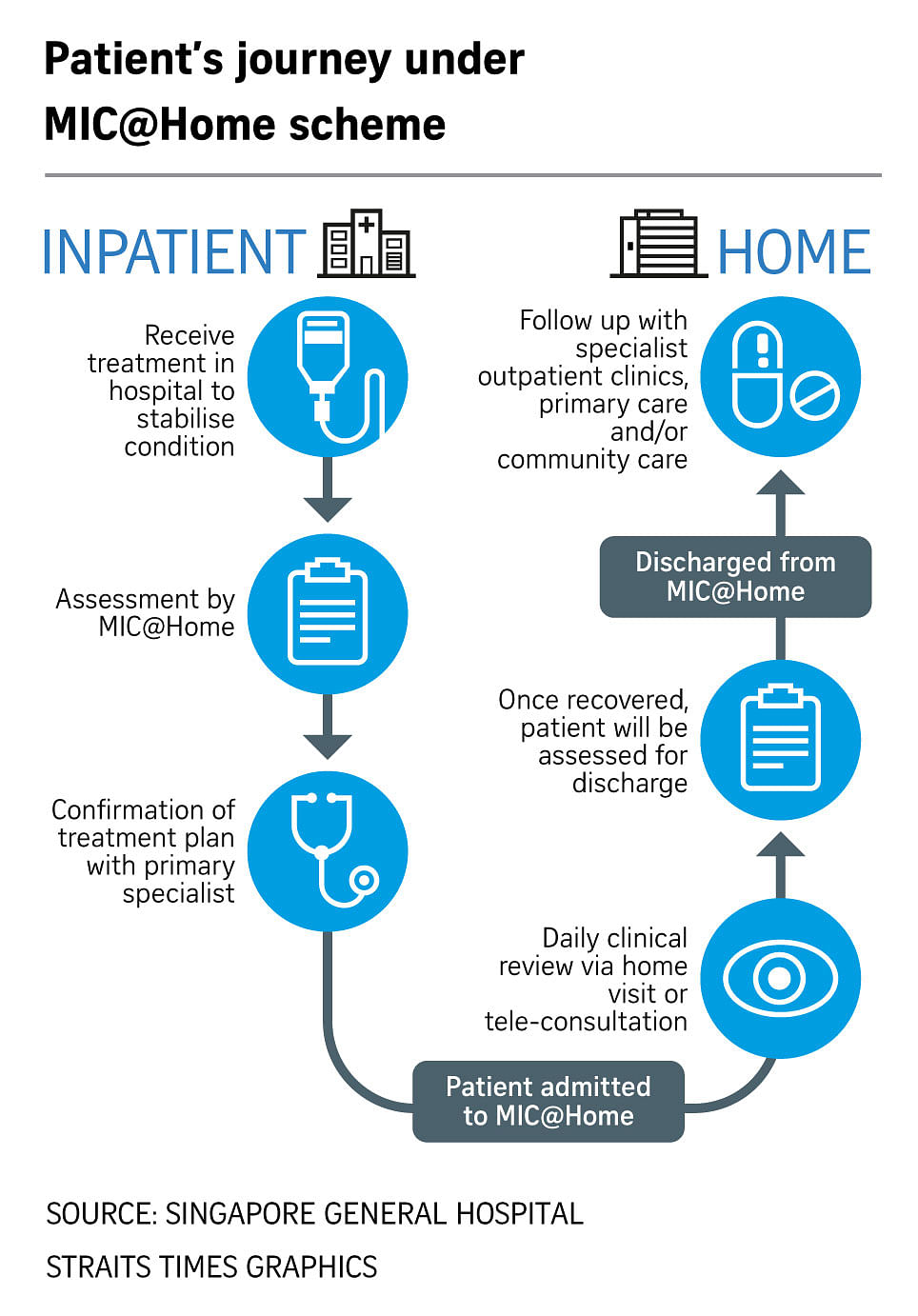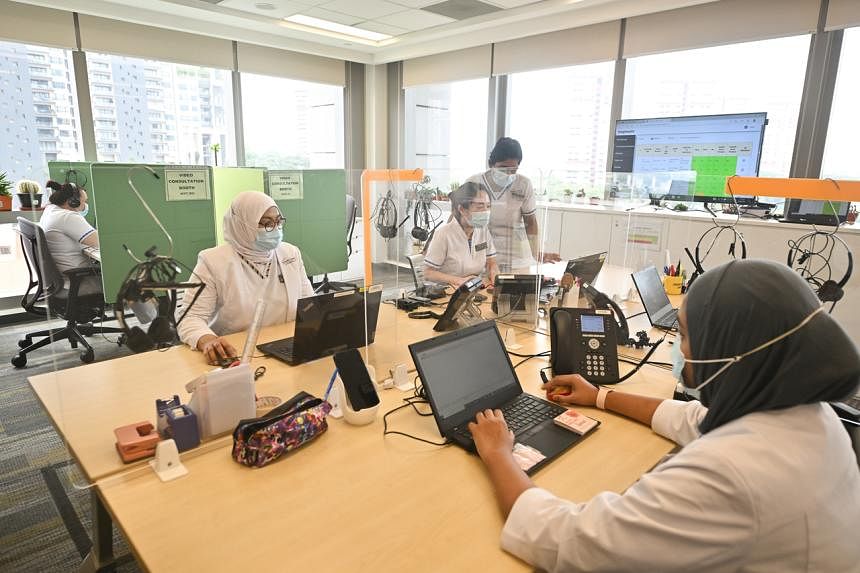SINGAPORE - Some patients who would normally spend time in hospital can now recover at home with the help of mobile medical teams, in an effort to allow them to get better in a familiar setting while helping to ease the hospital bed crunch.
Up to 2,000 patients can be treated at home in this manner over the next two years in a trial at National University Health System (NUHS@Home), Singapore General Hospital (SGH@Home) and Yishun Health Medical Home, with plans to rope in more hospitals later. Each hospital has a special team trained in caring for the home-based patients.
The new care model, called the Mobile Inpatient Care @ Home (MIC@Home), which was announced on Thursday, increases a patient's comfort, reduces hospital acquired infections, improves manpower efficiency and increases bed capacity without the need to build more inpatient wards in hospitals, said Mr Lai Yi Feng, senior manager and project lead of MIC@Home.
It is especially important as Singapore's population ages, leading to a growing demand for inpatient care with insufficient manpower to staff wards.
Said Mr Lai: "As the provision of healthcare continues to shift from hospital to the home and community, structural change and reorganisation of care delivery are pivotal."
Patients are cared for by a team of doctors, nurses, pharmacists and therapists through teleconsultations and home visits.
They receive similar clinical care to what they would receive in hospital, such as intravenous medication and blood tests, as well as 24/7 access to the care team until they are fit to be discharged, said Mr Lai.
Should the patient's condition deteriorate, he can be transferred to a hospital.
Earlier pilot trials showed that home hospitalisation is effective and safe for selected patients, with time taken to get well similar or reduced compared to those who were admitted to hospitals.
This trial, which is a scaling up from earlier trials, was announced in Parliament in March 2022, was started in April and is set to conclude by March 2024.
Patients under this initiative receive subsidies similar to those in hospitals, and they can expect a bill similar to that if they were to stay in a hospital.
Said Mr Lai: "We recognise that it is not for everyone and there are patients who would still prefer to be cared for in a hospital environment. These are the patients that we will need to slowly work on to change their mindsets.
"Those who are willing to try this care model, and those with confidence in the care team and the technologies that we have, these are the kinds of patients that we are targeting at this point."

Similar established care models in places like Australia, Europe and the United States have shown equivalent clinical outcomes as ward hospitalisations.
Patients recovering at home also reported sleeping and eating better, walking around more and perceived their recovery to be quicker.
Ms Teo Soo Leng, 51, was hospitalised at home from Aug 19 to 28 under NUHS@Home for cellulitis, a skin infection, and bacteremia, the presence of bacteria in the bloodstream.
She said: "Initially, I was sceptical about how the doctors and nurses would be able to support me virtually. However, I was impressed by how proactive and contactable the team was when I was on the programme.
"I had to send a health report via a virtual monitoring platform three times a day and if I forgot, they would call me. There was also a video call every morning."
She added that her mother had peace of mind to be able to watch over her at home.

Dr Sandra Tan, an associate consultant at NUH's division of advanced internal medicine who cared for Ms Teo, said she recovered "really well" at home.
Dr Stephanie Ko, a consultant in the division of advanced internal medicine at NUH and who is also the lead clinician for NUHS@Home, said: "Since the Covid-19 pandemic, more people are a lot more receptive to things being brought to the doorstep, such as groceries, medications and certain kinds of services. So this programme is coming in at a very opportune time, where medical care is brought to their homes."


